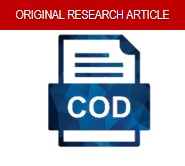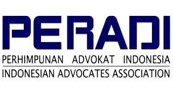Implementation of Regional Autonomy in the Education Sector Based on Law Number 23 of 2014 concerning Regional Government
DOI:
https://doi.org/10.46924/jihk.v1i2.128Keywords:
Education Sector, Authority Relations, Regional Autonomy, Central Government, Regional GovernmentAbstract
The existence of regional autonomy creates an authority relationship between the central government and the regions. In this case, the relationship between the center and the regions discussed by the author more focused on the relationship of educational authority. Given that the national education system has an important role in educating the Indonesian nation. In addition, during globalization, education is needed that is able to produce qualified human resources so that they can compete in the international world. The relationship between the central government and the regions can be seen from regional autonomy giving birth to the relationship between the central government and the regions, one of which is the relationship of educational authority which includes education management, curriculum, accreditation, educators and education staff, education licensing, and language and literature
Downloads
References
Jurnal
Akbal, Muhammad. “Harmonisasi Kewenangan Antara Pemerintah Pusat Dan Daerah Dalam Penyelenggaraan Otonomi Daerah.” Jurnal Supremasi 11, no. 2 (2016): 99–106. https://doi.org/10.26858/supremasi.v11i2.2800.
Bray, Mark. “Centralization Versus Decentralization in Educational Administration: Regional Issues.” Sage Journals 5, no. 4 (1991): 371–85. https://doi.org/10.1177/0895904891005004003.
Huda, Ni’matul, and Despan Heryansyah. “Kompleksitas Otonomi Daerah Dan Gagasan Negara Federal Dalam Negara Kesatuan Republik Indonesia.” Jurnal Hukum IUS QUIA IUSTUM 2, no. 26 (2019): 238–58. https://doi.org/10.20885/iustum.vol26.iss2.art2.
Huda, Ni’matul, and Sri Hastuti Puspitasari. “Peran Dan Fungsi Mahkamah Konstitusi Dalam Pembangunan Politik Hukum Pemerintahan Daerah.” Jurnal Hukum IUS QUIA IUSTUM 19, no. 3 (2016): 337–62. https://doi.org/10.20885/iustum.vol19.iss3.art1.
Lauglo, J. “Forms of Decentralisation and Their Implications for Education.” Comparative Education 31, no. 1 (1995): 5–29. https://doi.org/10.1080/03050069529182.
Nugraha, Harry Setya. “Gagasan Amandemen Ulang Undang-Undang Dasar Negara Republik Indonesia Tahun 1945.” Lex Renaissance 1, no. 3 (2018): 61–85. https://doi.org/10.20885/JLR.vol3.iss1.art11.
Parry, Taryn Rounds. “Decentralization and Privatization: Education Policy in Chile.” Journal of Public Policy 17, no. 1 (1997): 107–33. https://doi.org/10.1017/S0143814X00003457.
Pratama, Andhika Yudha. “Pelaksanaan Desentralisasi Asimetris Dalam Tata Kelola Pemerintahan Daerah Di Era Demokrasi.” Jurnal Pendidikan Pancasila Dan Kewarganegaraan 28, no. 1 (2015): 6–14. http://journal.um.ac.id/index.php/jppk/article/view/5434.
Rosadi, Otong. “Konstusionalitas Pengaturan Pemerintahan Daerah Di Indonesia: Suatu Eksperimen Yang Tidak Kunjung Selesai.” Jurnal Ilmu Hukum Padjadjaran 2, no. 3 (2015): 541–63. https://doi.org/10.22304/pjih.v2n3.a7.
Suharyo, Suharyo. “Otonomi Khusus Di Aceh Dan Papua Di Tengah Fenomena Korupsi, Suatu Strategi Penindakan Hukum.” Jurnal Penelitian Hukum De Jure 18, no. 3 (2018): 305–18. https://doi.org/10.30641/dejure.2018.V18.305-318.
Wijayanti, Septi Nur. “Hubungan Antara Pusat Dan Daerah Dalam Negara Kesatuan Republik Indonesia Berdasarkan Undang-Undang Nomor 23 Tahun 2014.” Jurnal Media Hukum 23, no. 2 (2016): 186–99. https://doi.org/10.18196/jmh.2016.0079.186-199.
Yusdianto. “Hubungan Kewenangan Pusat Dan Daerah Menurut Undang-Undang Nomor 23 Tahun 2014 Tentang Pemerintahan Daerah.” Jurnal Ilmu Hukum Padjadjaran 2, no. 3 (2015): 483–504. https://doi.org/10.22304/pjih.v2n3.a4.
Buku
Asshiddiqie, Jimly. Komentar Atas Undang-Undang Dasar Negara Republik Indonesia Tahun 1945. Jakarta: Sinar Grafika, 2013.
———. Konstitusi Dan Konstitusionalisme Indonesia. Jakarta: Sinar Grafika, 2011.
Fiske, Edward B. “Decentralization of Education: Politics and Consensus.” Washington DC, 1996.
Huda, Ni’matul. Perkembangan Hukum Tata Negara Perdebatan Dan Gagasan Penyempurnaan. Yogyakarta: FH UII Press, 2014.
Manan, Bagir. Menyongsong Fajar Otonomi Daerah. Yogyakarta: PSH FH UII, 2001.
Mawardi, Oentarto Sindung. Menggagas Format Otonomi Daerah Masa Depan. Jakarta: Samitra Media Utama, 20014.
Supriatna, Tjahya. Sistem Administrasi Pemerintahan Daerah Di Indonesia. Jakarta: Rineka Cipta, 1999.
Tilaar, H.A.R. Kekuasaan Dan Pendidikan, Magelang. Magelang: Indonesia Tera, 2003.
Teks Laporan
Dewan Perwakilan Daerah Republik Indonesia. “Kerangka Acuan Penelian Studi Hubungan Pusat Dan Daerah Kerjasama DPD RI Dengan Perguruan Tinggi Di Daerah.” Jakarta, 2009.
Regional Center for Educational Innovation and Technology. “Decentralization of Educational Management in Southeast Asia.” Philippine, 2012.
Peraturan Perundang-undangan
Indonesia. Undang-Undang Dasar Republik Indonesia Pasal 18 ayat (1) (1945).
———. Undang-Undang Nomor 12 tentang Pendidikan Tinggi. (2012).
———. Undang-Undang Nomor 20 Pasal 32 (1) tentang Sistem Pendidikan Nasional (2003).
———. Undang-Undang Nomor 23 Pasal 12 ayat (1) tentang Pemerintahan Daerah (2014).
Downloads
Published
Issue
Section
License
Authors who publish with this journal agree to the following terms:
- Copyright on any article is retained by the author(s).
- The author grants the journal, the right of first publication with the work simultaneously licensed under a Creative Commons Attribution License that allows others to share the work with an acknowledgment of the work’s authorship and initial publication in this journal.
- Authors are able to enter into separate, additional contractual arrangements for the non-exclusive distribution of the journal’s published version of the work (e.g., post it to an institutional repository or publish it in a book), with an acknowledgment of its initial publication in this journal.
- Authors are permitted and encouraged to post their work online (e.g., in institutional repositories or on their website) prior to and during the submission process, as it can lead to productive exchanges, as well as earlier and greater citation of published work.
- The article and any associated published material is distributed under the Creative Commons Attribution 4.0 International License




 Sinta ID:
Sinta ID: 


















